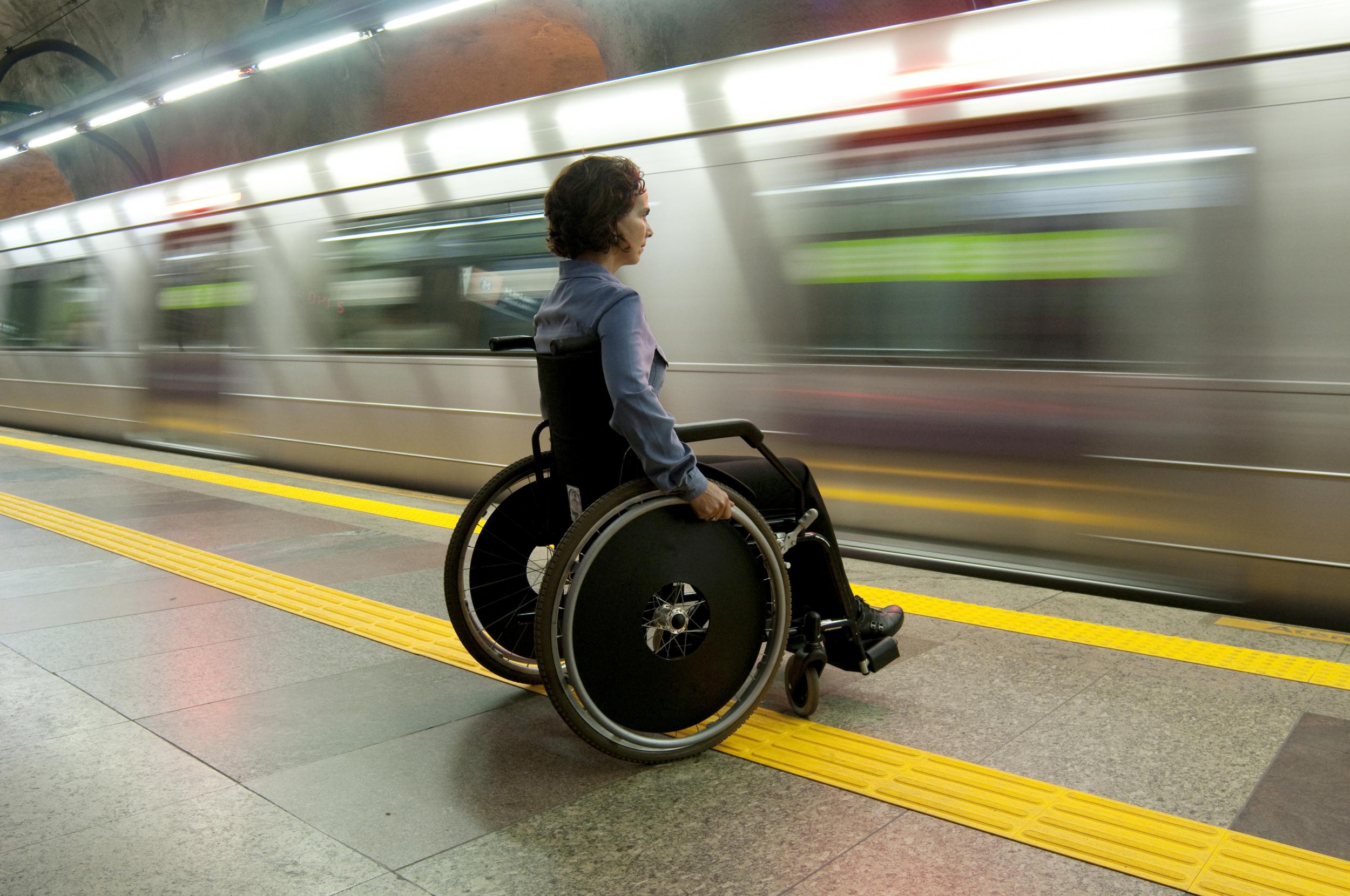What being newly disabled taught me about travelling by train
As new research reveals that 40 per cent of UK rail stations are inaccessible to disabled passengers, Hollie Brooks argues for rail companies to do more

Your support helps us to tell the story
From reproductive rights to climate change to Big Tech, The Independent is on the ground when the story is developing. Whether it's investigating the financials of Elon Musk's pro-Trump PAC or producing our latest documentary, 'The A Word', which shines a light on the American women fighting for reproductive rights, we know how important it is to parse out the facts from the messaging.
At such a critical moment in US history, we need reporters on the ground. Your donation allows us to keep sending journalists to speak to both sides of the story.
The Independent is trusted by Americans across the entire political spectrum. And unlike many other quality news outlets, we choose not to lock Americans out of our reporting and analysis with paywalls. We believe quality journalism should be available to everyone, paid for by those who can afford it.
Your support makes all the difference.Typically, I was out drinking beer and dancing at a gig the night meningitis started to take hold. Because no one expects their lives to be turned upside down on a Tuesday night, do they? That night changed my life and I spent the summer of 2018 as a wheelchair user and a campaigner for disabled passenger rights on British railways.
When meningitis and sepsis struck in June 2018, everything I ever thought I knew about the world and how to travel around it changed. My usual commute to work on Fleet Street would take me from my picturesque village in Wivenhoe, Essex, to Stratford and a quick journey on the Central line: the only thing that bothered me would be if a train was delayed by a few minutes.
Like the majority of the population, I had absolutely no idea of the struggle wheelchair users face on a daily basis. Just today, news emerged that more than 40 per cent of UK stations are not accessible to physically disabled people, according to research by disability charity Leonard Cheshire.
My latest struggle involved Greater Anglia using a designated wheelchair space as a catering service, selling tea and coffee from the space and piling up boxes by my feet so I couldn’t even get my wheelchair into a safe position. The photograph and videos went viral.
Greater Anglia were “sorry [I] felt upset” – not sorry it messed up, but sorry that I was apparently emotionally incapable and should be thankful for the company even allowing me on the train. Not sorry for the huge health and safety risk or the fact trolleys can apparently go somewhere else, but sorry I felt a certain way. Needless to say, its patronising response has turned into an example of what not to do when faced with a PR crisis.
But once the radio interviews and newspaper articles died down, the real question remained: how do we make a stand against train companies who know we rely on them to facilitate the most mundane parts of our day-to-day life?
Fancy popping off to the seaside for the afternoon? Or staying in the office an hour later to catch up on emails? If you’re a wheelchair user and travel by train, these everyday decisions are impossible. Rail companies demand you book travel assistance up to 24 hours in advance, meaning any sort of spontaneity is taken away from you.
Paralympian Lady Tanni Grey-Thomson has repeatedly called for rail companies to not only make their rules linear across providers, but also to abolish the outdated procedures that discriminate against disabled passengers.
Once you have jumped through hoops to organise your transport, there is absolutely no guarantee you’ll be assisted and treated with dignity. As my local train station is only accessible on one platform – something I’d never really thought about when I was able-bodied – Greater Anglia has to provide me with a wheelchair-assisted taxi to take me from the nearest station back to my local one. At times, the taxi just hasn’t turned up or a regular car, suitable for those who are able-bodied, has turned up instead, which adds insult to injury – quite literally.
Have you ever considered what you’d do if your assistance simply wasn’t there at your end destination? Comedian Tanyalee Davis uses a mobility scooter and has, on at least one occasion, been left on the train after a member of staff failed to turn up with the necessary ramp.

And what difference does pre-booking make if there’s zero communication between train companies and platform staff?
I’ve received hundreds of similar stories on Twitter, and the impact that the lack of travel assistance is having on the mental health of disabled users is huge. I’ve been subject to several panic attacks on platforms; I refuse to travel on my own after being left stranded by staff who treated me like I’m a huge inconvenience; and I’m missing out on job opportunities because I don’t trust Greater Anglia to provide their duty of care twice a day for a commute.
What rail companies don’t realise is their complicated procedures and sloppy staff members are causing disabled people to stay inside more, to isolate themselves and to be afraid of speaking out again because they know these complaints go absolutely nowhere.
Because it doesn’t matter if you’ve been in a wheelchair all your life or for the last three months like me. Even if you’re completely able-bodied, the need for ease of travel is a human right and you never know what you’ve got until it’s gone.
The journey starts now. It starts with making our voices heard; jumping through the hoops we have to in order to make formal complaints and demanding change. Not promises, not apologies. Change.
Join our commenting forum
Join thought-provoking conversations, follow other Independent readers and see their replies
Comments